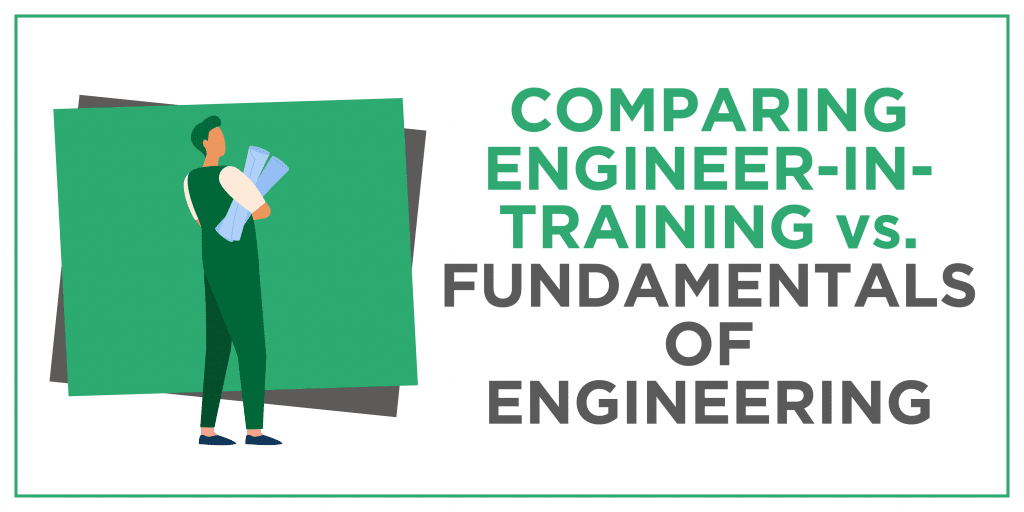Have you ever marveled at the skeleton of a skyscraper, the arch of a bridge, or the dome of a grand stadium and wondered who breathes life into these steel and concrete giants?
Enter the structural engineer—the unsung hero who ensures that the structures we take for granted stand tall against the forces of nature. It’s a profession that blends art and science, demanding not just a robust educational background but also a passion for overcoming the kind of challenges that textbooks don’t prepare you for.
The journey from a college graduate to a seasoned structural engineer is an adventure filled with learning curves sharper than the edges of a steel beam. This is why the National Society of Professional Engineers — among other institutions — recommends more than four years of college education for professional engineers. It also underscores the need for an extended educational voyage beyond the four-year college degree.
Why? Because the real world of structural engineering is a complex puzzle where academic knowledge meets the unyielding demands of the physical world.
So, if you’re ready to dive into the day-to-day life of a structural engineer and discover the intricate dance between creativity and calculations, the balance between design and durability, keep reading.
Our experts are about to pull back the curtain on a profession that shapes the skyline of our cities and the safety of our communities.
A Day in the Life of a Structural Engineer
Imagine orchestrating the rise of a city’s next landmark or ensuring that an old bridge can withstand the relentless march of time and traffic. This is the daily canvas of a structural engineer, where each day is a meticulous blend of innovation, analysis, and decision-making.
The day begins with a steaming cup of coffee and a review of the latest project blueprints. Amid the quiet hum of the office, our engineer assesses the structural integrity of designs, ensuring they not only dazzle the eye but also defy gravity. As the sun climbs higher, they might find themselves on a construction site, a hard hat in place, eyes sharp for any discrepancies between the plan and the emerging structure.
Lunch might be a quick affair, often with colleagues, where talk turns to the latest industry trends or a particularly challenging calculation. Post-lunch hours are reserved for collaboration with architects and construction teams, where the structural engineer’s expertise transforms architectural vision into feasible, safe structures.
As the afternoon wanes, they dive into complex simulations on state-of-the-art software, modeling how a building would sway in a hurricane or stand firm during an earthquake. They are the guardians of public safety, after all, ensuring that our built environment can endure the caprices of nature.
The day winds down with a final check of emails, perhaps a client meeting to explain the intricacies of a design, or a mentoring session with a junior engineer eager to learn the ropes.
This is the lifeblood of a structural engineer—where every day is different, every project a legacy in the making, and every decision a balance between the bold and the safe. It’s a career for those who dream in beams and live for the thrill of turning the impossible into the iconic.
Career Overview
Put simply, structural engineering is a more specialized branch of civil engineering.
Structural engineering demands a keen focus on the integrity of critical architectural elements like beams, columns, foundations, and trusses. In this role, you’re tasked with the pivotal job of ensuring that a diverse array of structures not only stand firm but also meet rigorous standards of design and functionality.
Your daily responsibilities straddle the crucial intersection of public safety and innovative design, requiring a deep understanding of how structures behave and how they can be optimized for both durability and visual appeal. It’s a balancing act of engineering acumen, cost-effectiveness, and aesthetic sensibility.
The construction industry often serves as the primary playground for structural engineers, with a wealth of projects ranging from towering edifices to intricate bridges and robust mechanical constructs. The field is ripe with opportunities, whether you choose to ply your trade as a private consultant or within the folds of government entities. The demand for structural engineers is robust in these sectors, but the possibilities extend far beyond these realms.
Cecil Balmond, a visionary in the field, encapsulates the essence of this profession: “Structural engineering is not just about creating structures that stand up; it’s about pushing the boundaries of what is architecturally possible.” In this spirit, structural engineers are not just builders but innovators, continually redefining the skyline and the very nature of the built environment.
Pros of Becoming a Structural Engineer
- Innovation and Creativity: Structural engineers often push the boundaries of design, creating structures that are not only functional but also aesthetically pleasing.
- Impactful Work: The work of structural engineers is vital in ensuring the safety and durability of buildings and infrastructure, making a lasting impact on society.
- Diverse Career Paths: With skills applicable in various industries, structural engineers can find opportunities in construction, aerospace, automotive, and more.
- Intellectual Challenge: The profession offers a constant intellectual challenge, requiring a deep understanding of physics, materials science, and geometry.
- Global Opportunities: Qualified structural engineers are in demand worldwide, offering the chance to work on international projects.
- Competitive Salary: Structural engineers command a respectable income, reflecting the skill and responsibility their role demands. On average, a structural engineer in the United States can expect to earn between $66,000 to $100,000 annually, with the potential for higher earnings as experience and expertise grow.
Cons of Becoming a Structural Engineer:
- Intense Responsibility: The nature of the work means that any oversight can have serious consequences, leading to a high-pressure work environment.
- Regulatory Navigation: Structural engineers must constantly navigate a complex landscape of local and international regulations.
- Demanding Education Requirements: The role typically requires advanced degrees and certifications, which can be time-consuming and costly to obtain.
- Limited Recognition: Despite their crucial role in construction, structural engineers often receive less public recognition compared to architects.
Almost everything you do as a structural engineer is focused on public health and safety concerns. However, you also need to keep cost efficiency and general aesthetics in mind when you design structures.
Essential Structural Engineer Skills
According to Payscale, construction companies commonly look for 5 key career skills among structural engineers: engineering design, finite element analysis, and proficiency in Autodesk AutoCAD, Microsoft Excel, and Autodesk Revit Structure.
If you have a strong knowledge base in any of these, you may be able to increase your starting salary. Plus, it will make you more attractive to an employer since you won’t need to go through as much on-the-job training.
Other than these core skills, the U.S. Bureau of Labor Statistics has a list of additional important qualities for any civil or structural engineer. They are:
- Decision Making: As a structural engineer, you’ll need to balance multiple objectives at the same time. Equally important factors like cost, safety concerns, and plan feasibility will often contradict each other. At that point, you need to be able to make an informed and effective decision about how to proceed with the project.
- Leadership: Other team members look to structural engineers like you for leadership on construction sites. Each project you work on is ultimately your responsibility— so you need to be able to lead effectively and take responsibility for your decisions.
- Math Skills: You need a strong understanding of advanced mathematics, such as calculus and trigonometry, when designing and analyzing structures.
- Organizational Skills: This is closely related to leadership. After all, you’re the one who designed the structure— so you need to ensure that all work follows your designs and meets all relevant building codes. And since structural engineers frequently work on multiple projects at the same time, you need the ability to effectively manage your time and attention between them all.
- Problem Solving: Essentially, your entire job focuses on problem-solving. You need to be able to design solutions to complex structural problems, such as issues with weight affecting gravity loads. And when any issues inevitably arise, you need to exercise your informed judgment to resolve them as quickly and safely as possible.
- Communication: Structural engineers need to present their completed designs clearly and concisely. You need to convey what you’ve done to ensure safety, keep costs down, and solve problems. Doing so requires them to break down complicated concepts into something anyone can understand, regardless of their work background. You may be communicating with project managers or an individual homeowner.
If you’re feeling anxious about acquiring all these necessary skills, don’t— you’ll pick up many of them on the job as long as you approach it with a willingness to learn from more experienced structural engineers.
Don’t be afraid to admit you don’t know something, and make sure you learn from your mistakes!
If you’re feeling anxious about acquiring all these necessary skills, don’t— you’ll pick up many of them on the job as long as you approach it with a willingness to learn from more experienced structural engineers.
PE vs SE Careers
Now that you understand the necessary job requirements, it might be worth looking into the careers you can get with a Professional Engineer (PE) or Structural Engineer (SE) license.
Typically, PE certification is for civil engineers, but you may need it for structural engineering work, depending on your location.
Currently, only 23 states offer SE licenses. Despite that, certain states actually require SE licensure to work on certain projects. For instance, California requires an SE for any construction process involving educational buildings and hospitals. Hawaii and Illinois take that even further by requiring you to have an SE license to work any structural engineering job.
Make sure to check out the NCSEA’s page on SE licensure to see if your state allows SE licenses. You’ll also want to check your state’s engineering body to see if you even need an SE to do the work you’re interested in.
Structural Engineer FAQs
Q: What do structural engineers do on a daily basis?
A: Structural engineering is a fairly broad field, but there are a few commonly shared tasks. Typically they’ll be designing and testing structural models. However, they also need to review structural shop drawings and complete risk assessment reports. Plus, they’ll need to make field visits and complete inspections of construction sites.
Q: What services do structural engineers provide?
A: Structural engineers design building support systems and inspect building plans. Their job is to ensure any construction project is safe, feasible, and cost effective. The services they provide construction companies are essential to maintaining the aesthetic and functional aspects of the structures they’ve helped design.
Q: Do I need a structural engineer to remove a wall?
A: This depends on whether or not the wall is load-bearing. You don’t need an engineer if you’re removing a non load-bearing wall— but you will need a structural engineer for any load-bearing wall. They’ll design a new load-bearing beam to ensure that the floors above don’t collapse. The construction of these beams requires very precise measurements, so you really need an expert to make sure everything is done correctly.

















